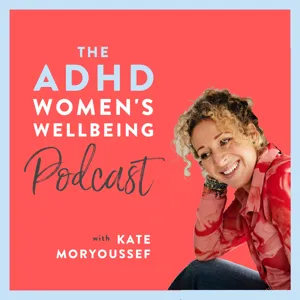Dr Ned Hallowell's personal advice on ADHD worrying and catastrophizing

When ADHD world expert, Dr Ned Hallowell told me he also constantly worries and catastrophises, I breathed a sigh of relief. "I'm not alone," I thought, listening intently to how he combats his incessant ADHD imagination!
On today's short episode, I'm delighted to welcome back the incredible ADHD world expert Dr Edward Hallowell, a board-certified child and adult psychiatrist, to the ADHD Women's Wellbeing Podcast for our second episode together.
Not only is Dr Ned an ADHD leader, but he's also a diagnosed patient, and he has dedicated his whole career to empowering and supporting people with ADHD. He's passionate about helping neurodivergent patients thrive and develop in life with new awareness, tools and strategies. He has written a new book, ADHD Explained, which can be bought here.
He has spent the past four decades helping thousands of adults and children live happy and productive lives through his strength-based approach to neurodiversity and has ADHD and dyslexia.
During this ADHD Women's Wellbeing Podcast episode, Kate and Dr Hallowell speak about:
- Dr Ned's newest book - ADHD Explained
- The Default Mode Network, ADHD and learning to switch channels
- The TPN and creativity
- Holding our attention well enough to hold the TPN
- Working around worry, Dr Hallowell's tips for ADHD overthinking
- Why you might be prone to ADHD worrying and catastrophising - the ADHD imagination
- The effects of ADHD symptoms on your nervous system
- Hypervigilance, Burnout and ADHD
- Glimmers and Touchstones to help us live with more inner peace
- The future of ADHD
If you'd like further support, my ADHD Women's Wellbeing Hormone Series is now available, with new resources regularly added. Learn how hormones are inextricably linked to our ADHD as women, advocate, and empower yourself and your loved ones with the most up-to-date information from specialists on hormones, ADHD, cycles, women, health, nutrition, genetic testing, lifestyle, menopause, and more! Click here for all the details and get access.



